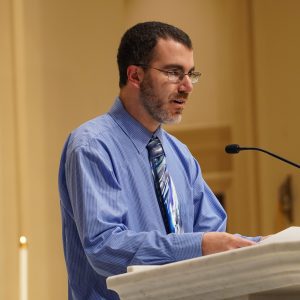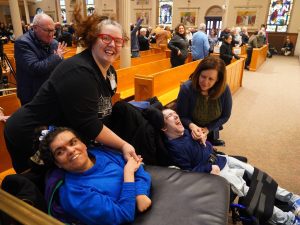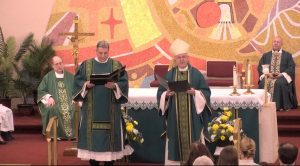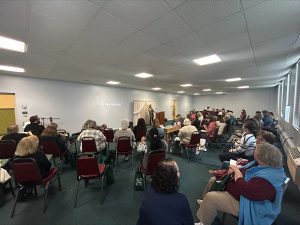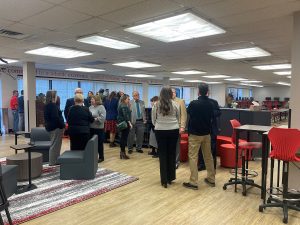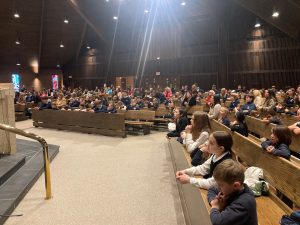GOOD NEWS! The fourth edition of Rectory, Set, Cook! is now underway through April 10, 2025. To view all the videos and vote for your favorite, click this link!
SCRANTON – For the third year in a row, priests from across the Diocese of Scranton have taken to the kitchen, recording themselves cooking a favorite recipe, to raise money for anti-hunger, anti-homelessness initiatives of Catholic Social Services.
Rectory, Set, Cook! III began on Feb. 13 and will run for six weeks, wrapping up on March 26.
“I’m on the phone at least once a week with Catholic Social Services for something – somebody needing heating oil, somebody needing food,” Father Mike Kloton, Pastor, Good Shepherd Parish, Drums, and Our Lady of the Immaculate Conception Parish, Freeland, said. “The employee who works the phones there recognizes my number!”
A total of 37 priests have participated in this year’s fundraiser – making a total of 30 videos. Some of the priests are being assisted by Catholic school students and other young people because the theme of this year’s effort is “Collars and Scholars.”
“By doing this, parishioners get a whole different view of us,” Father Kloton added. “They just want to see us as regular guys.”
For the last two years, Father James Paisley, who admits he has no culinary talent, has finished on top of the friendly culinary competition.
“It is a fun way to do something that a lot of priests have a little difficulty doing, which is asking for money,” Father Paisley said. “This is a fun way for us to put a good cause out there and have a lot of fun doing it.”
This year, Father Paisley says he decided on the perfect recipe after traveling all over the world to find ingredients for an “International Pizza.”
“It doesn’t matter if you have culinary skills. People see the fun that we’re having doing it and they’re thrilled to be able to support it,” he added.
Here is how the fundraiser works.
People who view the videos are asked to “support” their favorite recipe or priest by making a monetary donation of at least $10 per vote. People are welcome to donate as much money as they would like and are able to support as many priests as they desire.
“I try to come up with a recipe that hopefully everybody will like,” Father Jerry Gurka, Pastor, Saint John the Baptist Parish, Larksville, and All Saints Parish, Plymouth, explained. “As church and priests, we feed people spiritually and now we can feed people physically, helping people to be fed as well.”
This year, Father Gurka focused his culinary efforts around a key lime dessert.
“Key lime was my mom’s favorite recipe,” he said. “We are so happy to do this for people.”
Several philanthropic sponsors help to make Rectory, Set, Cook! possible, including our presenting sponsor, Hawk Family Foundation, and our Sous Chef Sponsors, M&T Bank and Mericle Commercial Real Estate Services and Discover NEPA.
To view all of the videos and vote for your favorite, scan the QR code in the graphic on this page or click on Rectory, Set, Cook! on the Diocese of Scranton website at dioceseofscranton.org.


